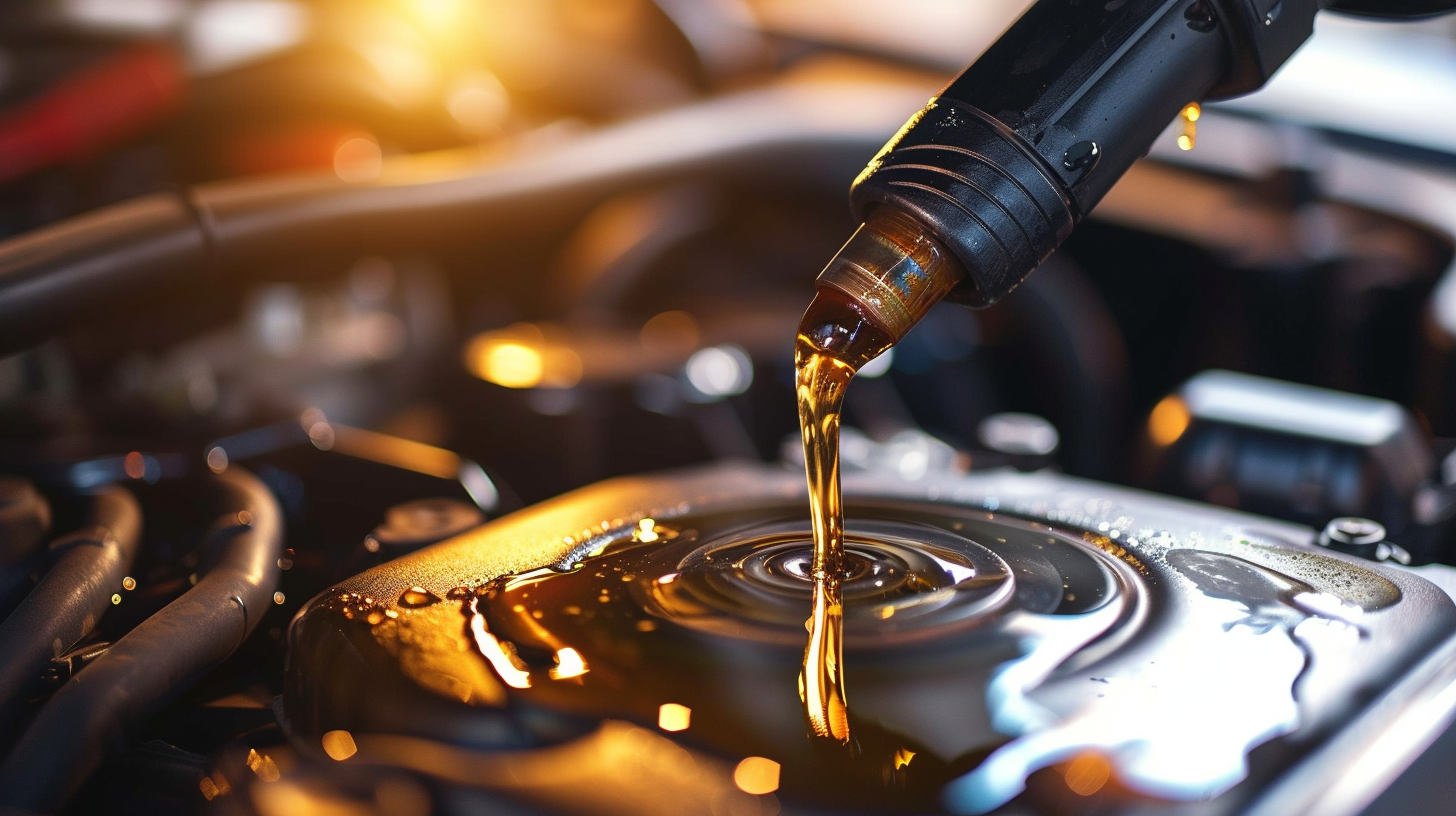Are you concerned about oil leaks in your car? Don’t worry, we’ve got you covered. In this article, we’ll show you how to easily detect and fix car oil leaks. You’ll learn how to identify the signs of a leak, pinpoint the source, and acquire the necessary tools for the job. Whether it’s a minor or major leak, we’ll guide you through the steps to fix it yourself or know when to seek professional help. Plus, we’ll share preventive measures to keep future leaks at bay. So let’s get started!
Common Signs of Car Oil Leaks
You should look for visible stains or puddles under your car as a common sign of car oil leaks. If you notice any dark, oily spots on the ground where your car is parked, it is likely that you have an oil leak. These stains can range in size and shape, but they are usually located near the front or middle of the car. Another sign to watch out for is a burning smell coming from your engine. This could indicate that oil is leaking onto hot engine parts and being burnt off. Additionally, you may notice a decrease in your car’s oil level on the dipstick, indicating that oil is leaking and not being properly circulated through the engine. It is important to address these signs promptly to prevent further damage to your car’s engine.
How to Identify the Source of the Oil Leak
To accurately pinpoint the origin of the oil leak, carefully inspect the various components of your car’s engine. Start by checking the valve cover gasket, which is located on top of the engine. Look for any signs of oil residue or leaking around the edges of the gasket. Next, examine the oil pan, which is located underneath the engine. Inspect for any cracks or damage that could be causing the leak. Another common source of oil leaks is the oil filter. Check if it is properly tightened and not leaking any oil. Additionally, inspect the oil drain plug to ensure it is securely fastened. Finally, examine the oil cooler lines and hoses for any signs of leakage. By thoroughly inspecting these components, you can identify the source of the oil leak and take appropriate measures to fix it.
Essential Tools and Supplies for Fixing Car Oil Leaks
Gather up all the necessary tools and supplies you’ll need to effectively fix car oil leaks. First and foremost, you’ll need a set of wrenches in different sizes to loosen and tighten bolts. A socket set with various sizes is also essential for removing and installing parts. Don’t forget to grab a pair of safety goggles and gloves to protect yourself from any potential hazards. To accurately locate the oil leak, an oil dye kit is necessary. This kit contains a fluorescent dye that can be added to the oil, making it easier to identify the source of the leak. Additionally, you’ll need a drain pan to catch any oil that may spill during the repair process. Finally, make sure to have an oil filter wrench and a new oil filter on hand for replacement.
Step-by-Step Guide to Fixing Minor Oil Leaks
Once you have gathered all the necessary tools and supplies, it’s time to dive into the step-by-step guide for fixing minor oil leaks. First, locate the source of the leak by inspecting the engine and underneath the car. Make sure the engine is cool before proceeding. Once you’ve identified the leaking area, clean it thoroughly with a degreaser to remove any oil residue. Next, apply a high-quality oil leak repair product to the affected area. Follow the product instructions carefully and allow it to cure for the recommended time. After the product has cured, start the engine and check for any signs of leakage. If the leak persists, it may be necessary to consult a professional mechanic for further assistance.
Addressing Major Oil Leaks: When to Seek Professional Help
If you’ve tried DIY solutions for fixing major oil leaks and are still experiencing issues, it may be time to consider seeking professional help. Certain signs, such as excessive smoke from the exhaust, low oil pressure, or engine overheating, could indicate more serious engine damage that requires expert attention. Don’t hesitate to reach out to a qualified mechanic who can accurately diagnose the problem and provide the necessary repairs to get your car back on the road.
DIY Oil Leak Solutions
When addressing major oil leaks, consider consulting a professional for assistance. However, if you are confident in your abilities and want to attempt a DIY solution, there are a few things you can try. First, identify the source of the leak. Is it coming from the oil filter, the oil pan, or the valve cover gasket? Once you have identified the source, you can try tightening any loose bolts or screws. If that doesn’t work, you may need to replace the faulty gasket or seal. Keep in mind that attempting to fix major oil leaks on your own can be challenging and may require specialized tools or knowledge. If you are unsure or uncomfortable with the process, it is always best to seek professional help to avoid causing further damage to your vehicle.
Signs of Engine Damage
To properly address major oil leaks and determine if professional help is needed, you should be aware of the signs of engine damage. When dealing with major oil leaks, it is important to recognize the warning signs that indicate potential engine damage. One of the most obvious signs is the presence of a large pool of oil underneath your vehicle. This could indicate a serious oil leak that needs immediate attention. Another sign is the smell of burning oil, which can indicate a leak that is dripping onto hot engine parts. Additionally, if you notice a sudden decrease in oil pressure or an increase in engine temperature, it may be a sign of a major oil leak and potential engine damage. If you experience any of these signs, it is recommended to seek professional help to properly diagnose and fix the issue.
Preventive Measures to Avoid Future Oil Leaks
By regularly inspecting and maintaining your vehicle, you can effectively prevent any potential oil leaks in the future. One of the most important preventive measures is to check your engine oil regularly. Make sure the oil level is within the recommended range and change it as per the manufacturer’s instructions. Additionally, ensure that the oil filter is replaced during each oil change. Another preventive measure is to inspect the gaskets and seals for any signs of wear or damage. Replace them promptly if needed. It is also crucial to keep your engine clean and free from debris, as dirt and grime can lead to oil leaks. Lastly, avoid overfilling your engine with oil, as it can cause excessive pressure and result in leaks. By following these preventive measures, you can maintain a leak-free engine and prolong the life of your vehicle.
Dealing With Gasket and Seal Issues
First, check if there are any gasket or seal issues in your car’s engine. Gaskets and seals play a crucial role in preventing oil leaks. Start by inspecting the valve cover gasket, which is located on top of the engine. Look for signs of oil leakage around the edges or corners of the valve cover. If you notice any oil residue or a visible gap, it may indicate a faulty gasket. Another common area for oil leaks is the oil pan gasket. This gasket seals the oil pan to the bottom of the engine. Check for oil stains or puddles underneath the car. If you find any leaks, it’s important to replace the damaged gasket or seal promptly to avoid further damage to your engine.
Importance of Regular Oil Changes in Preventing Leaks
Make sure you schedule regular oil changes every 3,000 to 5,000 miles to prevent oil leaks in your car. Regular oil changes are essential for maintaining the health and longevity of your engine. Over time, the oil in your car can become dirty and break down, losing its lubricating properties. This can lead to increased friction and heat, which can cause gaskets and seals to deteriorate and eventually leak. By regularly replacing your oil, you ensure that fresh, clean oil is circulating through your engine, reducing the risk of leaks. Additionally, during an oil change, a professional mechanic can inspect your gaskets and seals for any signs of wear or damage, allowing them to be addressed before they become a bigger problem. So, don’t skip out on oil changes – they are a crucial step in preventing oil leaks and maintaining the overall health of your car.

Lucas is an experienced vehicle technician with hands-on knowledge of almost every car brand available. Throughout his career, Lucas has worked on a wide range of vehicles, including domestic and foreign models, sports cars, trucks, and SUVs.





